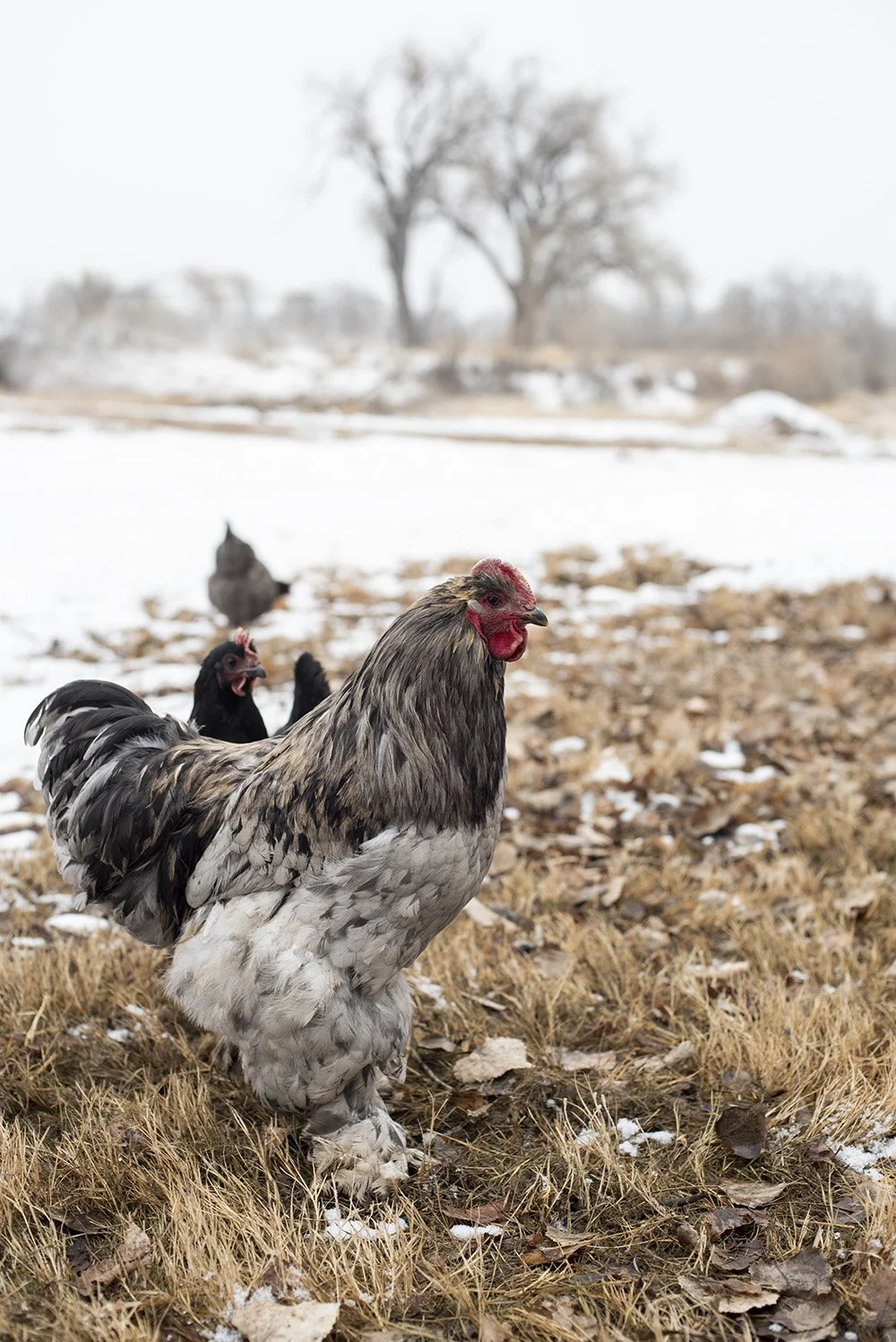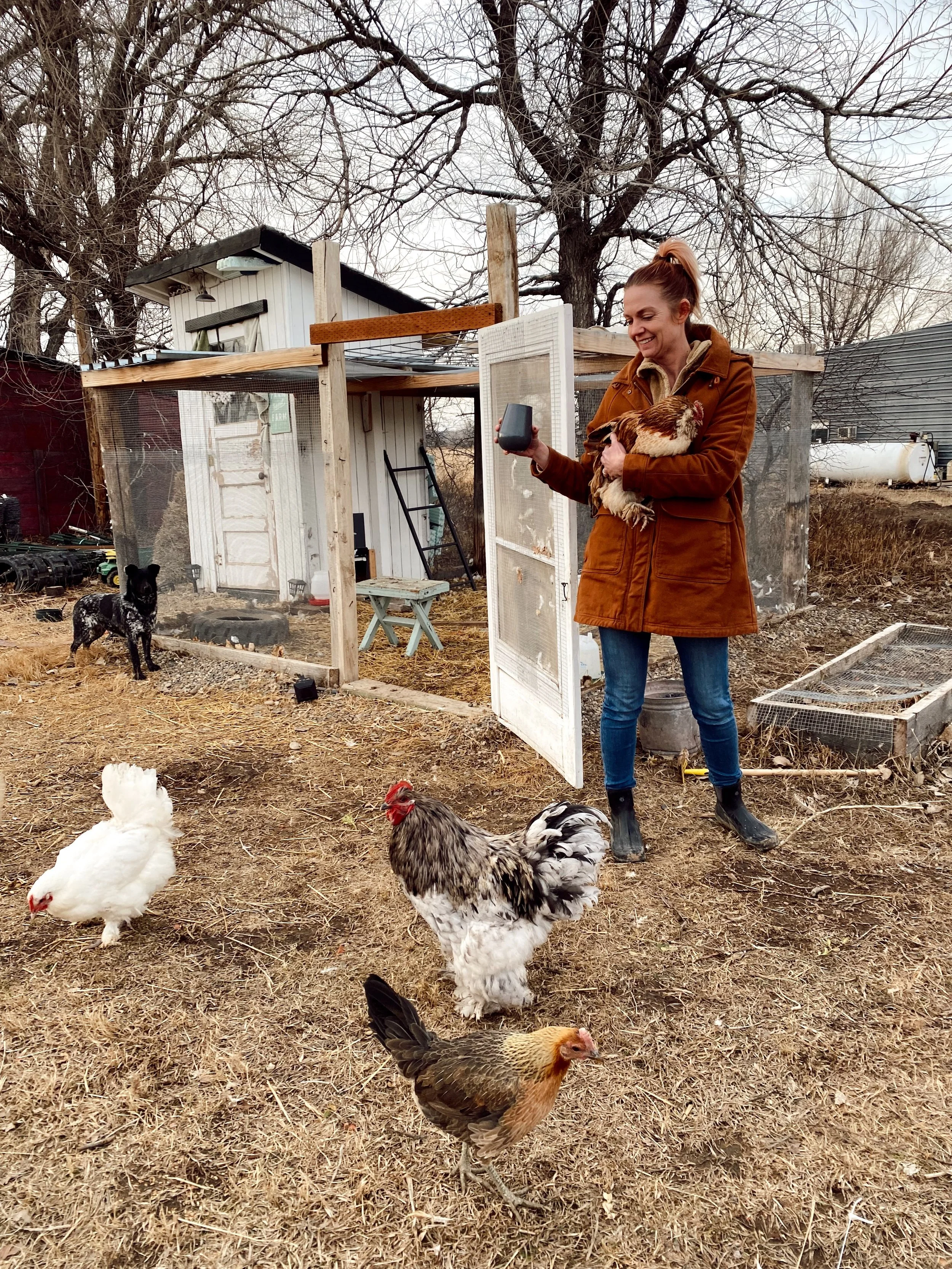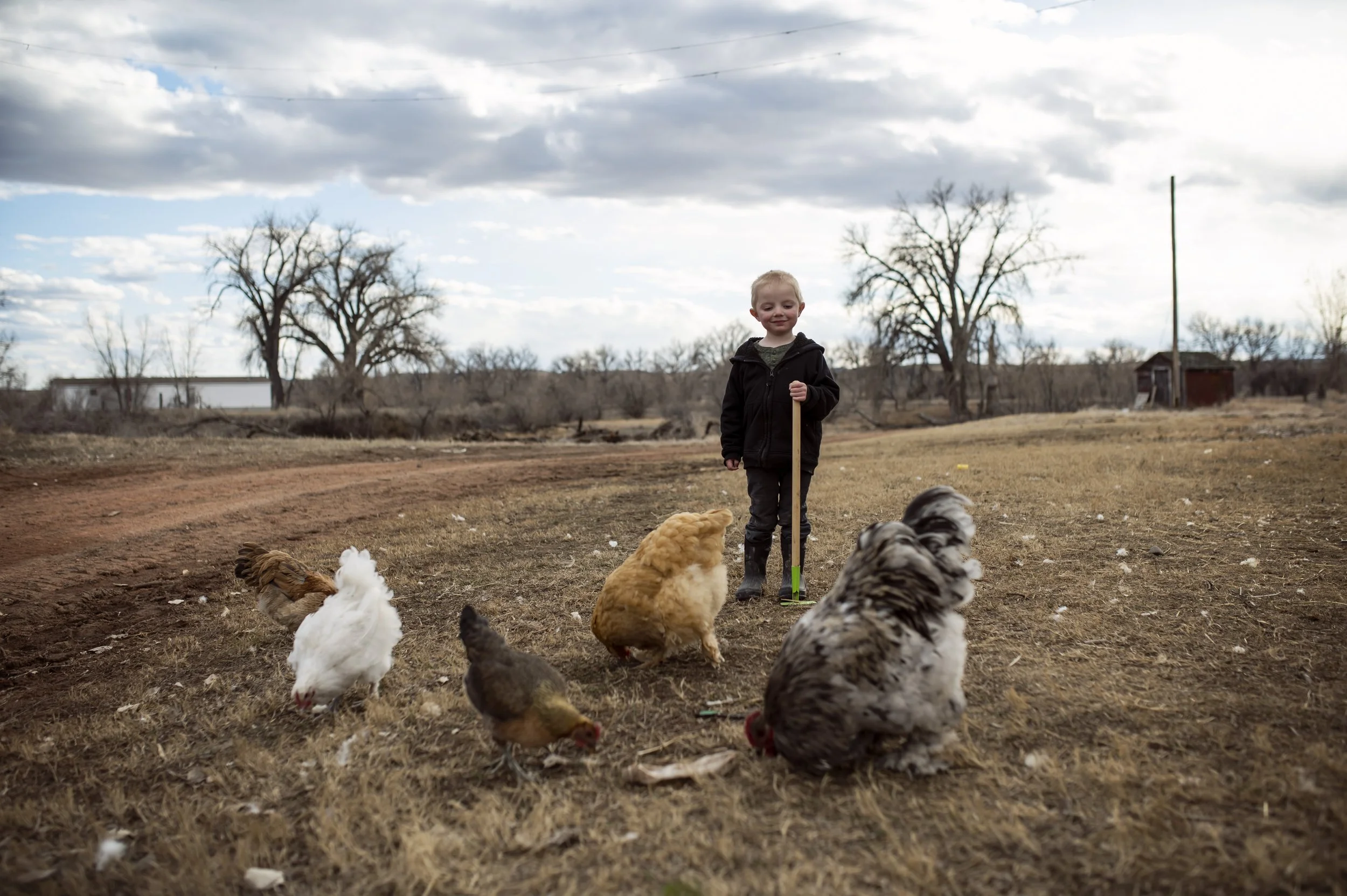The Truth About Roosters
When I brought home my first set of chicks, I was pretty dang clueless. Sure, I had done some preliminary research and made sure I had all the necessities but I didn’t really know what to expect. I am the type of person who really thrives off doing. I know that for me, when it comes to projects or learning something new, I do better just jumping in head first which is what I did with chickens. I like to say that everything is figure-out-able and learning by doing is really the best way to approach chickens. There are a few things I wish I had had more knowledge on and that is dealing with roosters. Sure you hear stories about having an ornery rooster. You inherently know they crow when the sun comes up. (turns out some like to crow all the time). You might even know that they tend to be very beautiful creatures as a way to attract the females, but there really is a lot more to them. Hopefully I can shed some light on why I absolutely adore our rooster and hope to always keep one in our flock.
Yes, roosters can definitely be aggressive. Sometimes they are just young and all hopped up on hormones but other times they are just mean. You can oftentimes work with a younger rooster, spend time handling them and they may grow out of that aggression, but that isn’t always the case. A young rooster is called a cockerel. (less than a year old but out of that chick stage). Cockerels are like teenage boys and sometimes their hormones get the best of them. They don’t really understand mating and can be a little rough, they might challenge other males if there are any around, some might even fight each other to establish dominance, and yes some might even attack you. My first time being attacked (I know attacked sounds very dramatic, but it kind of was dramatic.) by a rooster scared the shit out of me. We knew Bell was likely a rooster from the beginning based on the energy level and he just seemed like a male…we weren’t wrong. However as he grew, he only got more combative and his energy was a detriment to the entire flock. Ultimately we had to cull him because it just was not safe for my children and I drew a hard line when it came to my kids and the chickens. They had to be able to help care for them, and Bell made that impossible. After Bell, Dolly stepped up as the alpha which was fine for awhile. He was a touch aggressive, and eventually started chasing my oldest son. For the most part it was funny, but we could tell where it was heading. We could tell that Lola was also a rooster and deciding that we really only wanted one, kept Lola in the hopes that he would be the kind of rooster my kids could be around. Side note-we gave all our chicks traditional feminine names which is why the Roosters had those names.
Luckily Lola or as we call him now Big Poppa is the perfect gentleman. I am so glad I didn’t write off all Roosters as ornery little a-holes because Poppa is just what you want in a flock leader. He is very chill and not aggressive with the ladies. They all seem to like him and I do think he helps keep the peace among the girls. He is never too far from the coop or his flock, and if anything look suspicious, he crows to call them back in. I had heard roosters were protective of their flock, and Poppa definitely is. He has gone after my husband and someone who was once feeding the flock when we were gone, but I honestly think that is just his protective instincts kicking in as he doesn’t know them. (Kevin feeds the flock only a handful of times a year so not enough to be recognized. Poppa doesn’t actively go looking for trouble, but someone new in his coop area will alarm him). To be honest that is what he is hardwired to do. Protect his flock. Luckily he is giant ball of fluff so as long as you know it might be coming, you should be fine. Poppa does recognize myself as well as the boys as keepers and so he has never shown signs of aggression with us. I do still watch closely as you hear of roosters turning, but so far he is a loved member of our flock.
Another reason you might enjoy having a rooster is that your eggs will likely be fertilized so your chickens (if they are broody) can hatch out chicks or you can incubate your eggs and hatch out your own chicks. We have never done this, but might give it a try sometime. I will for sure let my girls hatch out chicks if they do go broody.
I also love the sound of a crowing rooster on a farm. Poppa doesn’t crow much and I really only hear him in the morning or if something has him concerned and he needs to alert his ladies, but I just think a farm needs a rooster.




